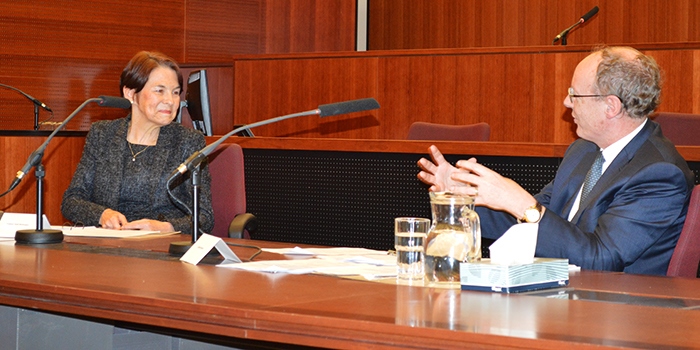Agency and attribution: is the law doing its job?
Is the law fulfilling its duty in relation to the attribution of illegal actions of an individual acting on behalf of a company?

That was the question put to Federal Court judge The Hon Justice Jonathon Beach and Professor Sarah Worthington of the University of Cambridge in the second Judges in Conversation event of 2015.
"Knowledge and attribution are the most difficult to deal with because they are the most sensitive in the law," Professor Worthington said.
Professor Worthington, an alumnus of Melbourne Law School, likened companies to humans in that they have a brain, nerve centre and hands to carry out their business.
"Companies are considered people, and there are responsibilities and liabilities that come with that," Professor Worthington said.
The pair discussed "vicarious liability" in relation to two cases in particular – Meridian Global Funds Management Asia Ltd v Securities Commission, in which Meridian employees failed to disclose the purchase of shares that made the company a substantial security holder, and Moore Stephens v Stone Rolls Ltd (in liq), in which a one-man company deceived auditors in carrying out fraud.
In Meridian, the company was found guilty because the actions of its employees were found to be attributable to the company. "Meridian hasn't delivered the oomph that could have come with the judgement in that case," Professor Worthington said.
Both Justice Beach and Professor Worthington said Stone Rolls Ltd was the first use they had ever seen of ex turpi causa, whereby a plaintiff is unable to recover if damage arises in connection to their own illegal act.
The event was the final in this year's series of conversations, with more planned for next year.By Andy Walsh